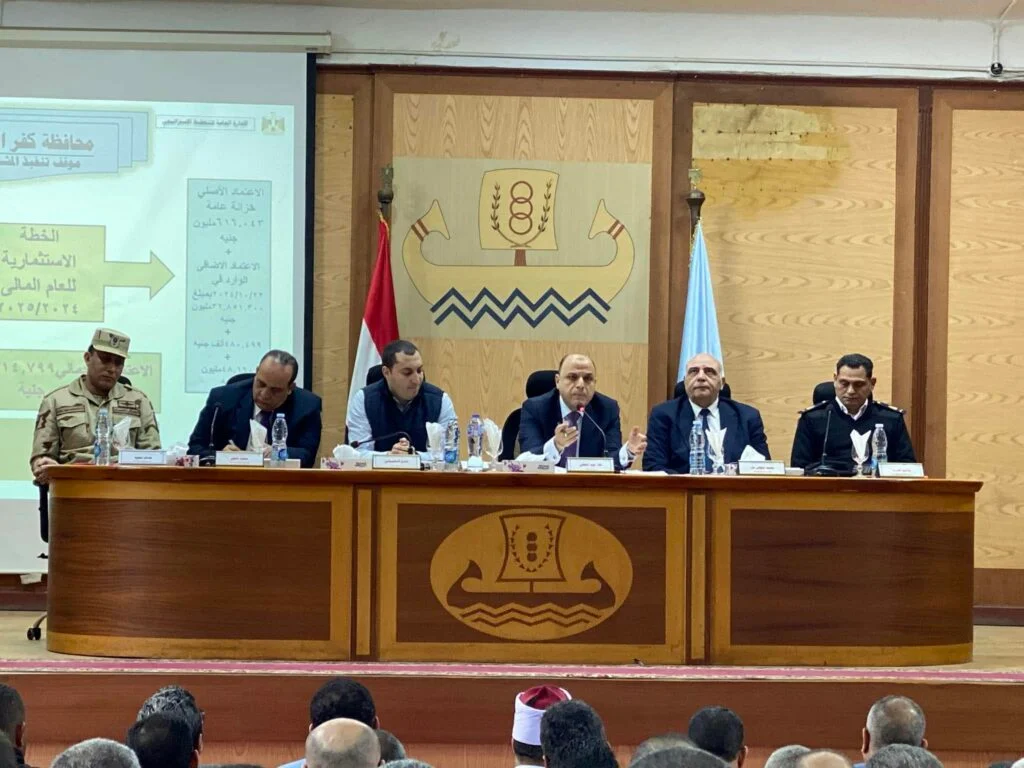Major General Dr. Alaa Abdel-Moati, Governor of Kafr El-Sheikh, discussed today, Wednesday, the procedures for land legalization, ways to facilitate payment for citizens, and removing obstacles to the process. The meeting was attended by Dr. Amr El-Beshbeshi, Deputy Governor of Kafr El-Sheikh; Major General Mohamed Shawky Badr, Secretary-General of the Governorate; Major General Mohamed Shaer, Assistant Secretary-General; Major General Samah Al-Azab, Director of Kafr El-Sheikh Traffic Department; and Major Hossam Mohamed, representing the Military Advisor. Also present were the heads of centers and cities, Mahmoud Rifaat, the official responsible for the legalization system, the Director of the General Administration of State Property, and several executive leaders.
The Governor of Kafr El-Sheikh directed the authorities to swiftly complete all legalization requests, simplify procedures for those serious about the process, and reclaim land from those not committed to legalizing their status. He emphasized the importance of protecting state property and closely monitoring the work of the legalization system in the governorate.

The governor explained that the state is working to provide all necessary facilitations and procedures to legalize the status of all serious applicants. He also stressed that the government will not tolerate state property encroachment and will continue enforcement waves to remove violations. Additionally, efforts will be made to safeguard reclaimed lands in coordination with the Law Enforcement Committee and the Security Directorate. The governor affirmed the strict enforcement of the law and the accountability of any official who facilitates violations on state lands.
Governor Abdel-Moati reaffirmed the commitment to overcoming obstacles, expediting the legalization process, and providing all possible support to resolve challenges. He urged the swift completion of inspections and contract issuance. He further highlighted that the financial revenues from the legalization process are reinvested into infrastructure projects and service improvements, particularly in the most underserved areas.
